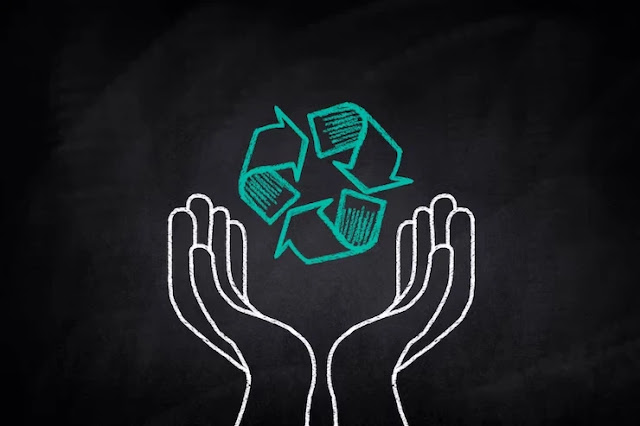The Future of Electronic Recycling
Electronic recycling is a method of retrieving beneficial materials from electronic devices. The recovered materials are used for new products, refurbished tablets, and refurbished laptops to improve their functionality. This process can help reduce disposal costs while ensuring that valuable material is not wasted in landfills. Read on to understand more about electronic waste and what the future looks like for this industry.

Brief about Electronic Waste
Electronic waste holds million worth of valuable metals and components. Unfortunately, we do not recycle e-waste as much as we should. Only 20% of electronic waste gets reclaimed, and the rest disappears in landfills.
Thankfully, many ITAD companies realize the impact of e-waste on the environment and have taken the initiative to process these wastes and use them on other products, such as refurbished laptops and phones.
Refurbished tablets, phones, and other gadgets use many components extracted from old computers, laptops, phones, and tablets. This ensures that nothing gets wasted in the process of electronic waste recycling.
Electronic Waste in the UK
The UK is one of the biggest contributors to electronic waste in Europe. According to a news article by Resource, the UK produced about 1.6 million tons of e-waste in 2019. That is about 23.9kg of electronic waste per person. Predictions show that by 2024, e-waste produced by one person will grow to 24.5kg.
The UK government targets recycling at least 50% of all electronic waste produced in the country. However, it has been revealed that the percentage of e-waste recycling in the United Kingdom only sits at about 31.2%, while about 40% is illegally exported to other countries.
Thankfully, global leading ITAD companies in the UK, are committed to lowering the growing e-waste crisis in the United Kingdom while ensuring data is disposed of correctly. All the tracking and reporting are done efficiently in a transparent and auditable way, allowing the experts to easily calculate the Electronics Disposal Efficiency rating in the country.
Electronics Recycling Steps Taken in the UK
Electronic recycling is a process that needs to be done systematically to ensure that the waste is handled correctly and all the essential components are used well. Here are three major steps in the e-waste recycling process:
Step 1: Recovering the Valuable Materials in Electronic Devices
Once recycling companies in the UK receive electronic waste, they extract valuable materials from the electronic devices. These may include precious metals such as gold, iron, palladium, copper, platinum, and other vital elements.
Before going to the next step, they also ensure that the data left in your hard drive is safely disposed of to prevent it from getting into the wrong hands. Data center services may help retrieve important information that owners or companies may still need.
Step 2: Processing these Valuable Materials into New Products
After all the valuable materials have been removed from the electronic devices, they are processed to create other modern gadgets. The non-functional and obsolete assets can be used to develop new gadgets or on refurbished tablets, phones, or laptops.
Step 3: Transporting the Processed Valuable Materials to Market
Once new products have been created, they are transported to the market for sale. You will find these refurbished phones, laptops, hard drives, and other gadgets on your local stores or online websites. Before they are taken to the market, they are assembled, and once their time is done, the process begins again.
How to Tackle the Growing Electronic Waste
Recycling alone is not enough to tackle the growing number of e-waste. Remember, the more e-waste is recycled, the more electronic gadgets are released. This means that e-waste might continue to increase if no other measures are taken. Some of the other ways to minimize e-waste are:
- Reusing: Reuse large gadgets for different purposes.
- Re-evaluating: Do you need to buy multiple devices, or can you find one gadget offering numerous functions?
- Donate to schools and churches.
- Improve the longevity of your device by cleaning and charging them correctly.
Efforts Taken by Companies to Focus on Recycling Technology
Many recycling companies, including data center services, are taking measures to ensure electronics are not disposed of anyhow. These companies have made significant efforts to focus solely on recycling technology. One is by collaborating with third parties for evaluation and certifying compliance.
These recycling companies also make an effort to develop new recycling technology that will ensure a large percentage of e-waste is recycled. Lastly, they ensure the government provides incentives to minimize e-waste as much as possible.
Change in Consumer Behaviour Regarding Recycling Electronics
Consumer behavior regarding recycling e-waste sparks much interest in the government and recycling companies. Statistics show that electronic consumption is projected to increase by 12.61%, but the good news is that many people are learning to dispose of their electronics safely instead of dumping them into the environment. This, again, is due to the efforts taken by recycling companies to educate the public on disposing of electronics.
Conclusion:
It is easy to see why E-waste recycling is essential. It helps save money and creates a sustainable environment. With the right ITAD company, you can also dispose of your data correctly and avoid data breaches.
The future of E-waste recycling looks promising if you plan to get into the business. However, more people need to be educated on disposing of and reusing electronics.

No comments